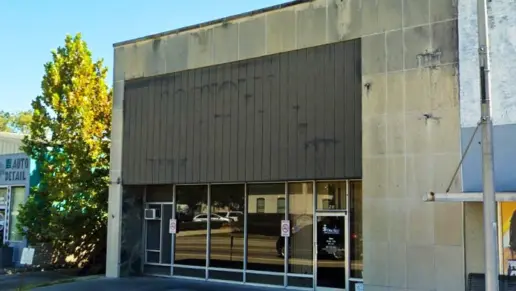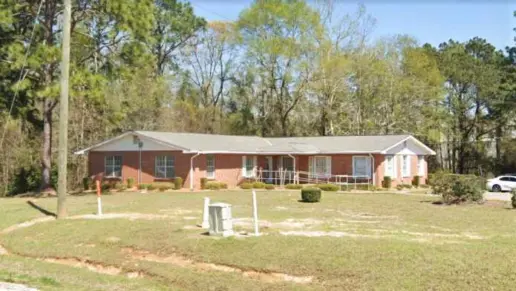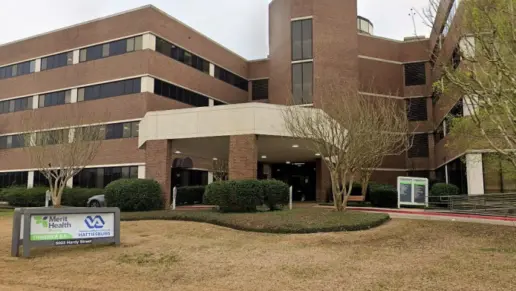About the Facility
Located in Hattiesburg, Mississippi, Pine Belt Mental Health Resources provides residential and outpatient addiction recovery services for adults, including specialized programming for young adults, seniors, and persons with co-occurring addiction and mental illness. They are state licensed and CARF accredited.
Pine Belt’s treatment model is based on a 12 step approach and includes individualized care to align with the client’s medical, mental health, social, emotional, and spiritual needs.
Their residential programs offer high-level structure, supervision, and support for clients in early recovery and those at an elevated risk of relapse. Short and long-term residential care options are available. Clients engage in intensive individual, group, and family counseling and robust gender and age-specific life skills training addressing topics such as coping, self-care, anger and stress management, self-esteem building, and relapse prevention. Vocational and academic training programs and evidence-based complementary therapies, including meditation and recreational therapy, are available.
Their outpatient programs encompass multiple levels of care to align with clients’ evolving needs and include continuing counseling and recovery education. Aftercare services ensure wraparound support and may include sober living referrals, 12 step program facilitation, and peer coaching.
Pine Belt Mental Health Resources contracts with most major insurance programs, including Anthem, Aetna, BlueCross/BlueShield, Cigna, United Healthcare, and others. Please contact your provider to verify coverage, as out of network benefits may vary. Sliding scale payment schedules and financial aid are available.
 Treatment
Treatment
 Alcoholism
Alcoholism
When a person has alcohol use disorder, often referred to as alcoholism, they build up a physical tolerance to alcohol, and they experience withdrawal if they stop drinking. Due to physical and psychological dependence, they may be unable to stop drinking on their own. Alcohol rehab in Mississippi can help. Treatment options include detox, cognitive behavioral therapy, mutual help groups, and pharmacological treatments.
 Drug Addiction
Drug Addiction
For those seeking help with addiction, a drug rehab in Mississippi offers the necessary care to achieve long-term recovery. Options include inpatient, residential, partial hospitalization, intensive outpatient, and long-term drug rehab in Mississippi.
 Dual Diagnosis
Dual Diagnosis
In Mississippi, dual-diagnosis addiction treatment programs have the expertise to treat individuals with co-occurring substance use disorders and mental health conditions. Their inpatient and outpatient rehab programs offer individual and group therapy, medication-assisted treatment, cognitive behavioral therapy, or dialectical behavioral therapy, and other trauma-informed care, and skills training to address both disorders and equip you with the skills to maintain your recovery.
 Mental Health and Substance Abuse
Mental Health and Substance Abuse
Mental health and substance abuse treatment options in Mississippi are typically in a dual-diagnosis facility offering inpatient, detox, and intensive outpatient programs. By addressing both mental health and substance abuse, participants drastically improve their well-being and are more likely to achieve long-term sobriety. These facilities typically offer a variety of therapeutic interventions, including counseling, medical care, group therapy, and holistic approaches like mindfulness or expressive arts therapy.
 Opioid Addiction
Opioid Addiction
Opioid rehabs specialize in supporting those recovering from opioid addiction. They treat those suffering from addiction to illegal opioids like heroin, as well as prescription drugs like oxycodone. These centers typically combine both physical as well as mental and emotional support to help stop addiction. Physical support often includes medical detox and subsequent medical support (including medication), and mental support includes in-depth therapy to address the underlying causes of addiction.
 Insurance and Financial
Insurance and Financial
Medicaid
Private insurance
Self-pay options
Financial aid
Medicare
Military insurance
 Programs
Programs
-
Adult program
-
Elderly program
-
Hearing impaired program
-
Program for men
-
Program for women
-
Young adult program
 Levels of Care
Levels of Care
 Outpatient
Outpatient
Clients stepping down from inpatient care or who prefer to remain at home while receiving intensive treatment may choose to enroll in an outpatient rehab. Outpatient day treatment, partial hospitalization (PHP), and intensive outpatient programs (IOP) are designed for clients requiring more robust supervision and daily treatment. Standard outpatient services enable clients to attend addiction counseling and recovery education throughout the week, with many centers offering weekend, night, and evening sessions to accommodate clients’ work and family schedules.
 Aftercare Support
Aftercare Support
Completing a drug or alcohol rehab program shouldn't spell the end of substance abuse treatment. Aftercare involves making a sustainable plan for recovery, including ongoing support. This can include sober living arrangements like halfway houses, career counseling, and setting a patient up with community programs like Alcoholics Anonymous (AA) or Narcotics Anonymous (NA).
 Clinical Services
Clinical Services
Cognitive Behavioral Therapy
Cognitive Behavioral Therapy (CBT) is a therapy modality that focuses on the relationship between one's thoughts, feelings, and behaviors. It is used to establish and allow for healthy responses to thoughts and feelings (instead of unhealthy responses, like using drugs or alcohol). CBT has been proven effective for recovering addicts of all kinds, and is used to strengthen a patient's own self-awareness and ability to self-regulate. CBT allows individuals to monitor their own emotional state, become more adept at communicating with others, and manage stress without needing to engage in substance abuse.
Couples Therapy
Whether a marriage or other committed relationship, an intimate partnership is one of the most important aspects of a person's life. Drug and alcohol addiction affects both members of a couple in deep and meaningful ways, as does rehab and recovery. Couples therapy and other couples-focused treatment programs are significant parts of exploring triggers of addiction, as well as learning how to build healthy patterns to support ongoing sobriety.
Dialectical Behavior Therapy
Dialectical Behavior Therapy (DBT) is a modified form of Cognitive Behavioral Therapy (CBT), a treatment designed to help people understand and ultimately affect the relationship between their thoughts, feelings, and behaviors. DBT is often used for individuals who struggle with self-harm behaviors, such as self-mutilation (cutting) and suicidal thoughts, urges, or attempts. It has been proven clinically effective for those who struggle with out-of-control emotions and mental health illnesses like Borderline Personality Disorder.
Experiential Therapy
Experiential therapy is a form of therapy in which clients are encouraged to surface and work through subconscious issues by engaging in real-time experiences. Experiential therapy departs from traditional talk therapy by involving the body, and having clients engage in activities, movements, and physical and emotional expression. This can involve role-play or using props (which can include other people). Experiential therapy can help people process trauma, memories, and emotion quickly, deeply, and in a lasting fashion, leading to substantial and impactful healing.
Family Therapy
Research clearly demonstrates that recovery is far more successful and sustainable when loved ones like family members participate in rehab and substance abuse treatment. Genetic factors may be at play when it comes to drug and alcohol addiction, as well as mental health issues. Family dynamics often play a critical role in addiction triggers, and if properly educated, family members can be a strong source of support when it comes to rehabilitation.
Group Therapy
Group therapy is any therapeutic work that happens in a group (not one-on-one). There are a number of different group therapy modalities, including support groups, experiential therapy, psycho-education, and more. Group therapy involves treatment as well as processing interaction between group members.
Individual Therapy
In individual therapy, a patient meets one-on-one with a trained psychologist or counselor. Therapy is a pivotal part of effective substance abuse treatment, as it often covers root causes of addiction, including challenges faced by the patient in their social, family, and work/school life.
Trauma Therapy
Trauma therapy addresses traumatic incidents from a client's past that are likely affecting their present-day experience. Trauma is often one of the primary triggers and potential causes of addiction, and can stem from child sexual abuse, domestic violence, having a parent with a mental illness, losing one or both parents at a young age, teenage or adult sexual assault, or any number of other factors. The purpose of trauma therapy is to allow a patient to process trauma and move through and past it, with the help of trained and compassionate mental health professionals.
 Settings and Amenities
Settings and Amenities
-
Private setting
 Contact
Contact
103 South 19th Avenue
Hattiesburg MS, 39401


